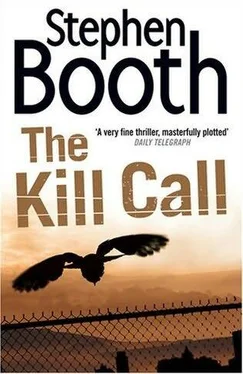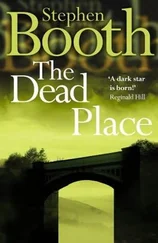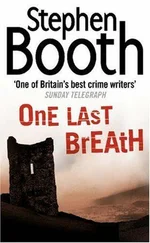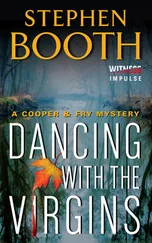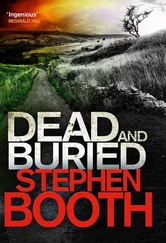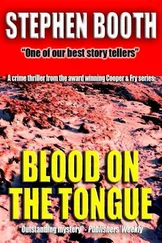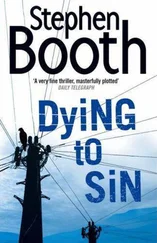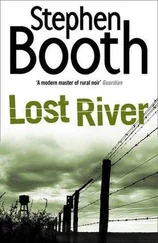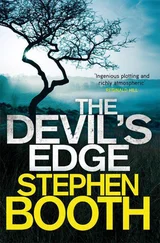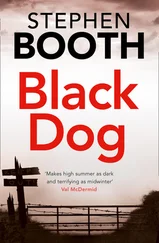Stephen Booth - The kill call
Здесь есть возможность читать онлайн «Stephen Booth - The kill call» — ознакомительный отрывок электронной книги совершенно бесплатно, а после прочтения отрывка купить полную версию. В некоторых случаях можно слушать аудио, скачать через торрент в формате fb2 и присутствует краткое содержание. Жанр: Полицейский детектив, на английском языке. Описание произведения, (предисловие) а так же отзывы посетителей доступны на портале библиотеки ЛибКат.
- Название:The kill call
- Автор:
- Жанр:
- Год:неизвестен
- ISBN:нет данных
- Рейтинг книги:4 / 5. Голосов: 1
-
Избранное:Добавить в избранное
- Отзывы:
-
Ваша оценка:
- 80
- 1
- 2
- 3
- 4
- 5
The kill call: краткое содержание, описание и аннотация
Предлагаем к чтению аннотацию, описание, краткое содержание или предисловие (зависит от того, что написал сам автор книги «The kill call»). Если вы не нашли необходимую информацию о книге — напишите в комментариях, мы постараемся отыскать её.
The kill call — читать онлайн ознакомительный отрывок
Ниже представлен текст книги, разбитый по страницам. Система сохранения места последней прочитанной страницы, позволяет с удобством читать онлайн бесплатно книгу «The kill call», без необходимости каждый раз заново искать на чём Вы остановились. Поставьте закладку, и сможете в любой момент перейти на страницу, на которой закончили чтение.
Интервал:
Закладка:
‘Some people didn’t want underground bunkers on their land,’ said Headon. ‘It was usually the bigger landowners who refused. Farmers were a bit more co-operative. There was a little bit of money to be made out of it, but not much.’
‘And Edendale?’
‘Edendale was a master post. It had the radio set.’
Cooper knew that Headon and Falconer were both enthusiasts, the kind who wanted to talk about their obsession. The trick was to filter out the information from the mass of reminiscence. But he was glad of the excuse to get out of the way, to interest himself in something else and let Diane Fry bring her case to a conclusion back at West Street. She didn’t need him getting under her feet. In fact, she didn’t need him at all. She’d said so herself.
‘The ROC was stood down in 1991, you said, David?’
‘That’s when the last posts were closed.’
‘They thought they didn’t need the Observer Corps quite so much by then?’
‘Right.’
Following Headon’s directions, Cooper swung the Toyota on to a narrow single-track lane that ran uphill between high dry-stone walls. Throughout the area, wallers were hard at work repairing the ravages of the Peak District winter. They passed one waller who had an old DAF towing a small caravan. If you had a long job to do, it was easier if you could live on site, he supposed.
‘But do you all still keep in touch?’
‘Some of us,’ said Headon. ‘There’s an association, you see. We have a newsletter, a benevolent fund, social get-togethers occasionally. I think there’s even a forum on the internet.’
‘So what are these underground posts like?’
‘Pretty basic. There’s a twenty-foot vertical ladder leading down to an underground chamber, seven feet wide and sixteen feet long. That housed the observers, their bunk beds, generators, the operations desk, other equipment. Conditions were very primitive.’
‘No running water, or mains electricity,’ chipped in Falconer.
‘Yes, and the only communication with the outside world was a Tele-Talk device connected to Group HQ, and of course the warning receiver. You needed dedicated people, prepared to lock themselves away in those conditions.’
‘Let’s be honest. We were a bit out of the ordinary,’ said Falconer. ‘The general public reaction was “If the bomb drops, we’re all going to die anyway, so why bother?”’
Cooper looked at him through his rear-view mirror. He was about the same age as David Headon. They were two old men, living on their memories. The further in your past a period was, the more it started to seem like the best days of your life.
‘There was a Peter Cook sketch once,’ said Cooper. ‘From the Footlights, maybe: “ When the four-minute warning sounds…”’
‘“… hold your breath and jump into a paper bag.” Yes, I remember.’
‘The Government’s preparations for nuclear war were ridiculed, weren’t they?’
‘Well, I blame the media for that,’ said Headon. ‘The public got the idea that if there was a nuclear attack, everyone would be wiped out and there’d be nothing left except some kind of radioactive wasteland. That’s why the advice sounded ludicrous. But if people took sensible precautions, most of the population would have survived an attack. You just had to make sure you stayed indoors until the fallout dispersed.’
‘If you say so.’
‘It’s true.’
Cooper had grown up accustomed to the idea that history was all around him — many thousands of years of history, right there, visible in the Peak District landscape. Stone circles and Iron Age hill forts were curiosities to be explored, the bumps and hollows of ancient lead mining added an intriguing feature to many parts of the county. Tudor manor houses and the vast mansion of the Dukes of Devonshire at Chatsworth were obvious historical landmarks. Eyam itself was a monument to a seventeenth century disaster.
But more recent history was sometimes overlooked. Apart from the Dambusters museum at Derwent Reservoir, there was precious little to remind people of the events of the Second World War. And the Cold War, even less.
Perhaps it was because those events were still within living memory for so many people. The years when the world was on the brink of extinction didn’t need a museum or visitor centre, because they were still clear and vivid in the minds of those who’d lived through them, and survived. Well, it was only true of the older generation now. Cooper couldn’t recall being taught many details about the Cold War when he was at school.
But then he thought about the dates again. Of course, the Cold War had still been going on when he was a child, with the likes of Reagan and Thatcher rattling their sabres at the Soviets. All through the nineties, new Trident submarines were still being rolled out. What were they called? Vanguard, Victorious, Vigilant. They sounded much like the names of foxhounds, really.
In 1991, John Major had been in his first year as prime minister, and George Bush Senior was still president of the USA. The pre-Blair, pre-Clinton years. It seemed like a millennium ago.
‘So, 1991…’ said Cooper. ‘The Soviet Union collapsed. The Berlin Wall had come down…’
‘Yes, and a suddenly there was a big hole in the nation’s defences,’ said Headon. ‘That September, our Chief Observer had a letter asking him to arrange the clearance of the post, and return the equipment and keys. It was adding insult to injury. Frankly, we told them “sod that”. They could collect the stuff themselves. And that was the last we heard from the ROC.’
Diane Fry took Deborah Rawson into a vacant interview room. The woman looked more nervous today, which was what she’d been hoping for. Nervous people were more likely to tell the truth. They found it difficult to concentrate on maintaining a lie. All she needed was one slip, one flaw in Deborah’s story.
‘Mrs Rawson, you said earlier in the week that you didn’t get involved in your husband’s business, you didn’t even know exactly who he dealt with.’
‘That’s right.’
‘Well, I have to tell you, I don’t believe that’s entirely true.’
‘Oh, don’t you? Well, I’m not lying.’
‘Why should we believe you, when you lied to us before?’
Deborah smiled. ‘I only tell lies when I’ve got something to gain by it.’
Fry studied her thoughtfully. She still didn’t trust Deborah Rawson, but her last answer sounded pretty much like the truth.
‘You must know that your husband was supplying horses to an abattoir, for meat.’
‘Meat.’ She pulled an expression of disgust. ‘Do people really eat horses?’
‘Yes, lots of them.’
‘Not in this country, though, I bet. It would be the French.’
‘Did your husband sometimes travel abroad on business?’
‘Yes, sometimes.’
‘To France?’
She hesitated. ‘Yes. He flew to Paris from East Midlands Airport three or four times a year. Brussels, too, now and then. So he said.’
Fry looked at her curiously, detecting a change of tone in her last comment. Watching Deborah Rawson’s face, she saw a faraway look in her eyes, as if at a memory or a recurrent, familiar thought.
‘Mrs Rawson, did you have any reason to think that your husband might be having an affair?’
The woman’s eyes focused sharply on her again as she tried to rearrange her expression. ‘What makes you say that? I’ve been following your logic so far — that Patrick went up to Derbyshire to meet either a seller or buyer, and they had an argument of some kind, and Patrick got hurt. I can understand that. I can live with it. But why are you asking me this question about him having an affair? What has that got to do with anything?’
Читать дальшеИнтервал:
Закладка:
Похожие книги на «The kill call»
Представляем Вашему вниманию похожие книги на «The kill call» списком для выбора. Мы отобрали схожую по названию и смыслу литературу в надежде предоставить читателям больше вариантов отыскать новые, интересные, ещё непрочитанные произведения.
Обсуждение, отзывы о книге «The kill call» и просто собственные мнения читателей. Оставьте ваши комментарии, напишите, что Вы думаете о произведении, его смысле или главных героях. Укажите что конкретно понравилось, а что нет, и почему Вы так считаете.
